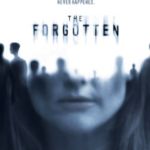Gattaca (1997)
“No, we’ve got discrimination down to a science.”
That great line is at the hub of this film, a narrative of a future absolutist society that classifies you and judges you from birth onward, based on your genes. You are in either the elites or the underclass, and your DNA is the reason. You are officially labeled a “Valid” or an “In-Valid” for life. And that fateful tag is irrevocable.

So utilitarian – and soulless – is this ultra-eugenics world that conceiving children naturally has become passé and artificial insemination, in vitro fertilization and gene manipulation are, as Vincent (Ethan Hawke), the lead character, explains, “what has become the natural way.” So what if all this involves bringing countless new humans into existence, at life’s earliest stages, and throwing away – killing – the ones who don’t measure up or simply aren’t wanted?
Early on, Vincent, narrating a past scene in his life, says, as we see a rosary in his mother’s hand during her labor with him, “I’ll never understand what possessed my mother to put her faith in God’s hands rather than the local geneticist.” Tested as soon as he is born (his birth is not shown), baby Vincent is found to have several major problems, including myopia and a heart defect that means he’s likely to live just “30.2 years.”
Next time around, wanting a brother for Vincent, his parents do visit the local geneticist and they order a designer baby. They are blasé about the lives of the three extra IVF babies conceived whom they don’t want. We learn that years later, Vincent’s made-to-order younger brother, Anton (Loren Dean), is “superior” to him in many ways.
We also learn that Vincent and Anton’s last name is “Freeman.” Not for nothing is that the case, at least for Vincent. Relegated to a lifetime of menial jobs because his DNA says he is less than perfect, he thinks outside the totalitarian box: he cherishes his childhood dream of going into space and seeks a way to make it reality. He characterizes himself as someone who “refuses to play the hand he was dealt.”
His great desire to qualify to go into space leads Vincent to try to beat the system. He meets a lookalike, Jerome (Jude Law), an ex-athlete who has “perfect” genes but is paralyzed from the waist down after a severe injury. A depressive Jerome agrees to help Vincent impersonate him, and become employed at the Gattaca space conglomerate, by daily supplying him with his own blood, urine and hair samples, which Vincent will need to pass the rigid and pervasive DNA security checks at Gattaca.
Vincent goes to extreme lengths to assume Jerome’s identity. The elaborate scheme works, and the genetically “imperfect” Vincent qualifies for space flight thanks to his will to achieve. Soon Gattaca, thinking Vincent is Jerome, promotes him for a mission to Saturn’s moon Titan. But then a murder probe on the Gattaca premises turns up an eyelash from Vincent and the DNA from it makes him a suspect.
Simultaneously, “Jerome” (Vincent) and co-worker Irene (Uma Thurman) become an item, and before long they have sex (little is shown). (Irene’s surname, Cassini, is the movie-makers’ sly reference to the Cassini-Huygens Saturn-probe mission of 1997-2017.)
Meanwhile, the real murderer is found. But Vincent is not in the clear, because a Gattaca security agent who’d been on his trail turns out to be his long-estranged brother Anton. Inspector Javert-like, Anton wants to expose Vincent as a fraud. To settle things, Vincent challenges Anton to a contest they played as boys – seeing who can out-swim the other. Vincent not only wins, but he saves Anton from drowning. Anton eventually relents.
Irene learns Vincent is an impostor and is crushed. After she tells him she doesn’t even know who he is, he reveals his real name and says, “I’m a ‘faith birth’ or a ‘de-gene-erate,’ whatever you want to call it.” She exclaims, “You’re a ‘God-child?’”
“A God-child”: What a wonderful name for who each of us is, “made in the image and likeness of God.” This film’s opening credits quote Ecclesiastes 7:13: “Consider God’s handiwork: who can straighten what He hath made crooked?’ They omit the next verse, 7:14: “On a good day enjoy good things, and on an evil day consider: Both the one and the other God has made, so that no one may find the least fault with Him.”
The movie’s other opening credit quote is an arrogant one from Hastings Center co-founder Willard Gaylin, a psychoanalyst by trade: “I not only think that we will tamper with Mother Nature, I think Mother wants us to.” On the contrary, unlike in the harsh world of “Gattaca,” in real life we are not to play God and outrage nature by committing death-dealing experiments and techniques.
Instead, society would do well – indulge me here – to abide by life-affirming counsel like that which Forrest Gump always gave people: “My Mama always said, ‘Life is like a box of chocklit. You never know what you’re gonna get.’” Mama had always told Forrest, “You have to do the best with what God gave you.” She was right, pace the Willard Gaylins and Peter Singers of this world.
SPOILER ALERT: Vincent, as “Jerome,” does realize his dream and take off on the rocket ship to Titan. (The real Jerome has prepared a two-lifetime supply of genetic material for him so he can continue to evade detection.) As Vincent blasts off, he refers to himself as “someone who was never meant for this world.” Neither are the rest of us meant for a cruel world like Gattaca’s.
Andrew Niccol wrote the script and directed. Slawomir Idziak was the cinematographer and Michael Nyman composed the score. Ernest Borgnine, Alan Arkin and Gore Vidal have roles. The MPAA rating is “PG-13 for brief violent images, language, and some sexuality.” Repellent features include close-up bloody images, two bedroom scenes, profanities and obscenities, two momentary scenes of men’s buttocks, and a non-detailed but morally ambivalent suicide scene.
— Dan Engler













